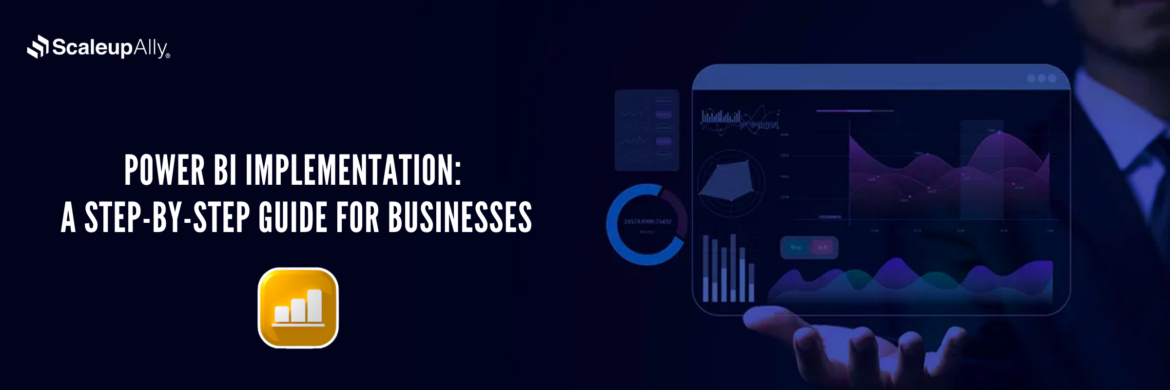
Benefits of Business Intelligence in the Travel Industry
Tarsem Singh | December 27, 2023 , 8 min read
Table Of Content
The travel industry is very complicated, with many companies and systems working together in real-time to keep everything running smoothly. These include Travel Management Companies, Global Distribution System Providers, Call Centers, and Travel Agencies.
All this interaction creates a huge amount of data, but there are still some gaps in what gets collected. This makes it hard for travel companies to do targeted advertising or offer personalized services. They also struggle to use predictive analytics. However, new technologies are changing how travel companies collect and use data.
Business Intelligence and Analytics are important for fixing many problems affecting how much money a company makes and how well it runs.
Using these technologies, you can understand how customers behave by combining data from travel companies, online portals, and social media. This understanding helps companies see trends and what customers like or don’t like. It also helps them understand how customers feel. This is useful for making business plans and finding new ways to sell.
For example, if an airline suddenly starts losing money on a route that used to make much money, Business Analytics can help figure out why. Travel companies’ data might show increased competition in that area, which could be contributing to the airline’s sudden loss of profitability on the route. This insight, combined with user comments from portals and blogs, can provide valuable feedback on customer perceptions of the airline. If it’s not good, the airline can work on fixing the problems. The data can also be shown in a report to help the airline understand what’s affecting how customers feel.
This article explores the role of BI in overcoming challenges and unlocking opportunities within the travel industry. It uses real examples to explain each idea. Let’s begin!
Understanding Business Intelligence in Travel
- Understanding Business Intelligence in Travel
- Challenges Faced in the Travel Industry
- Benefits of Business Intelligence in the Travel Industry
- Implementing Business Intelligence: Strategies and Considerations
- Looking Forward: The Future of BI in The Travel Industry
- Final Thoughts
- Frequently Asked Questions
- Further Reading: Business Intelligence Applications Across Sectors
In the context of the travel industry, business intelligence involves using data analysis tools and methodologies to gain insights, make informed decisions, and optimize various business processes.
Imagine someone is going on a vacation. They bought their plane tickets online. Because of BI, they might get a special deal from their favorite airline for the best flight route. They might also get offers to book a hotel and find great restaurants at their destination, especially if they’re okay with spending a bit more money. Leveraging such information strategically is essential for achieving sustainable growth.
Challenges Faced in the Travel Industry
While the benefits of BI are undeniable, the travel industry also has many challenges. Rising fuel costs, geopolitical uncertainties, and the recent global health crisis have underscored the sector’s vulnerability.
Cunnard Tours, for instance, faced a decline in bookings during the pandemic. Through BI analysis, they pivoted to promote exclusive virtual travel experiences, mitigating losses and maintaining customer engagement.
The travel industry deals with changing customer needs and external factors such as fuel prices and geopolitical events. Pricing becomes a delicate balancing act, and miscalculations can lead to revenue loss.
For instance, Lufthansa Group used BI analytics to adjust pricing in real-time during a sudden surge in demand around a major event, increasing revenue without compromising customer satisfaction.
Cruise companies like Delloite implement Business Intelligence (BI) to streamline their operations, gaining real-time insights into passenger demographics. This has allowed them to optimize onboard services and fine-tune marketing strategies, improving efficiency and substantially reducing operational costs.
Benefits of Business Intelligence in the Travel Industry
Let’s discuss how your travel business can benefit from business intelligence.
1. Data-Driven Decision Making
The travel company Wanderlust Expeditions used data analysis to determine where their customers preferred travel the most. Using this information, they improved their tours and took advantage of new trends, which helped them get many more bookings.
2. Predictive Analytics for Demand Forecasting
It is always tricky to figure out how many people will travel and when they’ll do it. BI tools can help by looking at past data and current trends. This helps travel agencies plan better so airlines, hotels, and others can be ready for busy times, ensuring they don’t lose money and use their resources well.
3. Enhanced Customer Relationship Management (CRM)
Customer loyalty is really important for travel companies. Business Intelligence (BI) helps these companies make strong customer relationship plans by giving them a complete look at how customers interact. For example, travel agencies use BI to make personalized travel plans matching each customer’s preferences. This makes customers want to come back and do more business with them.
4. Streamlined Operations and Cost Efficiency
Business intelligence (BI) tools help companies see how well they run. For example, Rail companies use BI to plan routes and schedule maintenance better. This makes their trains break down less often and cost less to run. As a result, they can offer lower prices and get more customers.
5. Fraud Detection and Risk Management
Fraud can happen in the travel industry, too. BI uses smart technology to find strange patterns in bookings and payments. This smart way helps protect money and keeps the industry’s good name by ensuring transactions are safe, and customers trust the system.
6. Marketing Optimization
Good marketing in the travel industry needs a good understanding of how customers behave. BI can study how well different ways of marketing work. You can find the best places to advertise and improve your marketing plans. This helps more people to book and make more money from the ads.
Implementing Business Intelligence: Strategies and Considerations
Let’s explore key strategies and considerations that can empower businesses to make informed decisions and drive growth through effective business intelligence practices.
1. Implementation Strategies
Using business intelligence (BI) in the travel industry requires careful planning. AirTech Solutions, a top company in aviation technology, introduced BI tools gradually in different parts of their business. They ensured their staff knew how to use these tools and that the change happened slowly. This careful way of doing things made the switch to BI smooth and let AirTech Solutions get the most out of it without causing problems in their day-to-day work.
2. Overcoming Implementation Challenges
Even though there are clear benefits to using BI, it is still difficult to implement it. A cruise had trouble because their employees didn’t know much about using data for analysis. They handled this by promoting a culture where everyone understands data use, providing training, and showing how BI helps with everyday work. Eventually, the employees saw BI as something really important and useful.
Looking Forward: The Future of BI in The Travel Industry
As we conclude our exploration of the benefits of Business Intelligence in the travel industry, it’s evident that BI is not just a solution for the present but for businesses to plan for the future. The symbiotic relationship between data-driven decision-making and operational efficiency helps the industry grow.
Final Thoughts
The examples we’ve shared in this series show that BI isn’t the same for everyone. Making BI work for your business is where the real success comes from.
In a world where travel is getting more complicated and competitive, BI gives businesses the insights they need to succeed. As you start using BI, remember that it’s not just about being efficient; it’s about being innovative and growing steadily.
Here’s to a future where every decision is smart and every journey, whether by land, air, or sea, is well planned. BI doesn’t just help you reach your goals; it opens up new opportunities for success.
For personalized BI strategies and consultations, contact ScaleupAlly for tailored insights and guidance on optimizing your travel agency.
Frequently Asked Questions
Q. How can business intelligence help understand and predict travel demand?
BI employs predictive analytics by analyzing historical data and real-time market trends. This enables accurate travel demand forecasting, helping businesses prepare for peak periods, optimize resource allocation, and minimize revenue loss.
Q. Is BI suitable for small travel businesses, or is it more suitable for larger enterprises?
BI is adaptable and beneficial for businesses of all sizes. Smaller travel businesses can leverage BI tools to enhance efficiency, understand customer preferences, and compete effectively. The scalability of BI solutions makes them suitable for enterprises of varying sizes.
Q. What important things should you consider when using Business Intelligence in the travel industry?
Critical considerations include implementing strategies, overcoming challenges, and evolving technological trends. Phasing in BI tools, addressing staff familiarity, and regularly updating technology ensures smooth integration and sustained relevance.
Further Reading: Business Intelligence Applications Across Sectors
Related Blogs

Power BI Implementation: A Step-by-Step Guide for Businesses
Discover how to implement Power BI in your organization with this comprehensive guide. Learn essential steps and best practices for successful implementation.
Tarsem Singh
Dec 30 ,
11 min read

Power BI Report Builder: A Beginners Guide
Discover how to use Power BI Report Builder with this step-by-step guide. Learn installation, dataset connections, report design, and how to publish professional paginated reports.
Tarsem Singh
Dec 24 ,
8 min read

Power BI Integration: The Ultimate Guide
Discover what Power BI integration is and learn how to connect different data sources to get actionable insights for an informed decision-making process.
Tarsem Singh
Dec 21 ,
12 min read








